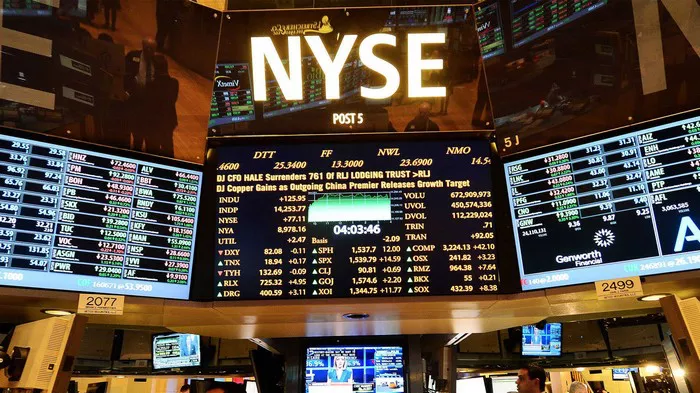Stock futures play a crucial role in the financial markets. They offer insight into the future direction of stock prices. Investors and traders use stock futures to hedge against risks or speculate on price movements. This article explores what stock futures are, how they work, and their impact on the market.
What Are Stock Futures?
Stock futures are contracts to buy or sell a stock at a predetermined price on a specified future date. They are standardized agreements traded on futures exchanges. These contracts obligate the buyer to purchase, and the seller to sell, the underlying stock at the set price, regardless of the market price at the contract’s expiration.
How Do Stock Futures Work?
Stock futures operate on the principle of leverage. When you buy a stock future, you do not pay the full price of the underlying stock. Instead, you pay a margin, which is a fraction of the total contract value. This margin acts as a good faith deposit. The margin requirement is determined by the futures exchange and varies depending on the contract.
Key Components of Stock Futures
Underlying Asset: The specific stock or index that the futures contract is based on.
Contract Size: The amount of the underlying asset covered by the contract.
Expiration Date: The date on which the contract expires and the transaction must be completed.
Settlement Type: Futures can be settled either by physical delivery of the stock or cash settlement, where the difference between the contract price and the market price is exchanged.
Why Trade Stock Futures?
There are several reasons why investors trade stock futures:
Leverage: Futures allow traders to control large amounts of stock with a relatively small investment.
Hedging: Investors can use futures to protect against adverse price movements in their stock holdings.
Speculation: Traders can profit from anticipated price movements without owning the underlying stock.
Liquidity: Futures markets are highly liquid, making it easy to enter and exit positions.
Types of Stock Futures
Stock futures can be categorized into two main types:
Single Stock Futures: Contracts based on individual stocks.
Index Futures: Contracts based on stock market indices, like the S&P 500 or the Dow Jones Industrial Average.
The Role of Stock Futures in the Market
Stock futures provide several benefits to the financial markets:
Price Discovery: Futures markets contribute to the price discovery process by reflecting the market’s expectations for future price movements.
Market Efficiency: Futures trading enhances market efficiency by allowing for more rapid dissemination of information and adjustment of prices.
Risk Management: Futures enable investors to manage and mitigate risks associated with their stock holdings.
See Also: What Causes Stock Index Futures to Fall?
Factors Influencing Stock Futures Prices
Several factors can influence the prices of stock futures:
Supply and Demand: Basic economic principles of supply and demand affect futures prices.
Interest Rates: Changes in interest rates impact the cost of carrying the underlying stock, influencing futures prices.
Dividends: Expected dividends on the underlying stock can affect futures prices.
Market Sentiment: Investor sentiment and expectations about future market movements play a significant role.
Economic Indicators: Economic data releases, such as GDP growth, employment figures, and inflation rates, can impact futures prices.
Trading Strategies for Stock Futures
Traders use various strategies to trade stock futures effectively:
Long and Short Positions: Taking a long position involves buying futures contracts in anticipation of rising prices. A short position involves selling futures contracts expecting prices to fall.
Spread Trading: Involves taking opposing positions in different futures contracts to profit from price differentials.
Hedging: Protecting existing stock positions by taking an opposite position in the futures market.
Arbitrage: Exploiting price discrepancies between the futures market and the underlying stock market.
Risks Associated with Trading Stock Futures
While trading stock futures can be profitable, it also carries significant risks:
Leverage Risk: High leverage can amplify losses as well as gains.
Market Risk: Futures prices can be highly volatile, leading to potential losses.
Liquidity Risk: In some cases, it might be difficult to enter or exit positions without affecting the market price.
Counterparty Risk: The risk that the other party in the futures contract may default.
Stock Futures vs. Options
It’s essential to distinguish between stock futures and options:
Obligation vs. Right: Futures contracts obligate both parties to transact at the set price. Options give the holder the right, but not the obligation, to buy or sell at a predetermined price.
Leverage: Both instruments offer leverage, but the margin requirements and potential risks differ.
Risk Profile: Options can limit potential losses to the premium paid, while futures can lead to significant losses beyond the initial margin.
Conclusion
Stock futures are a vital component of the financial markets. They offer leverage, hedging opportunities, and a means to speculate on future price movements. Understanding how stock futures work, their benefits, risks, and trading strategies can help investors make informed decisions. By carefully analyzing market conditions and managing risks, traders can use stock futures to enhance their investment strategies and achieve their financial goals.
The Future of Stock Futures
The future of stock futures looks promising, with technological advancements and increasing market participation. Innovations like algorithmic trading, high-frequency trading, and artificial intelligence are transforming the way futures are traded. As the markets continue to evolve, stock futures will remain a crucial tool for investors and traders seeking to navigate the complexities of the financial landscape.


